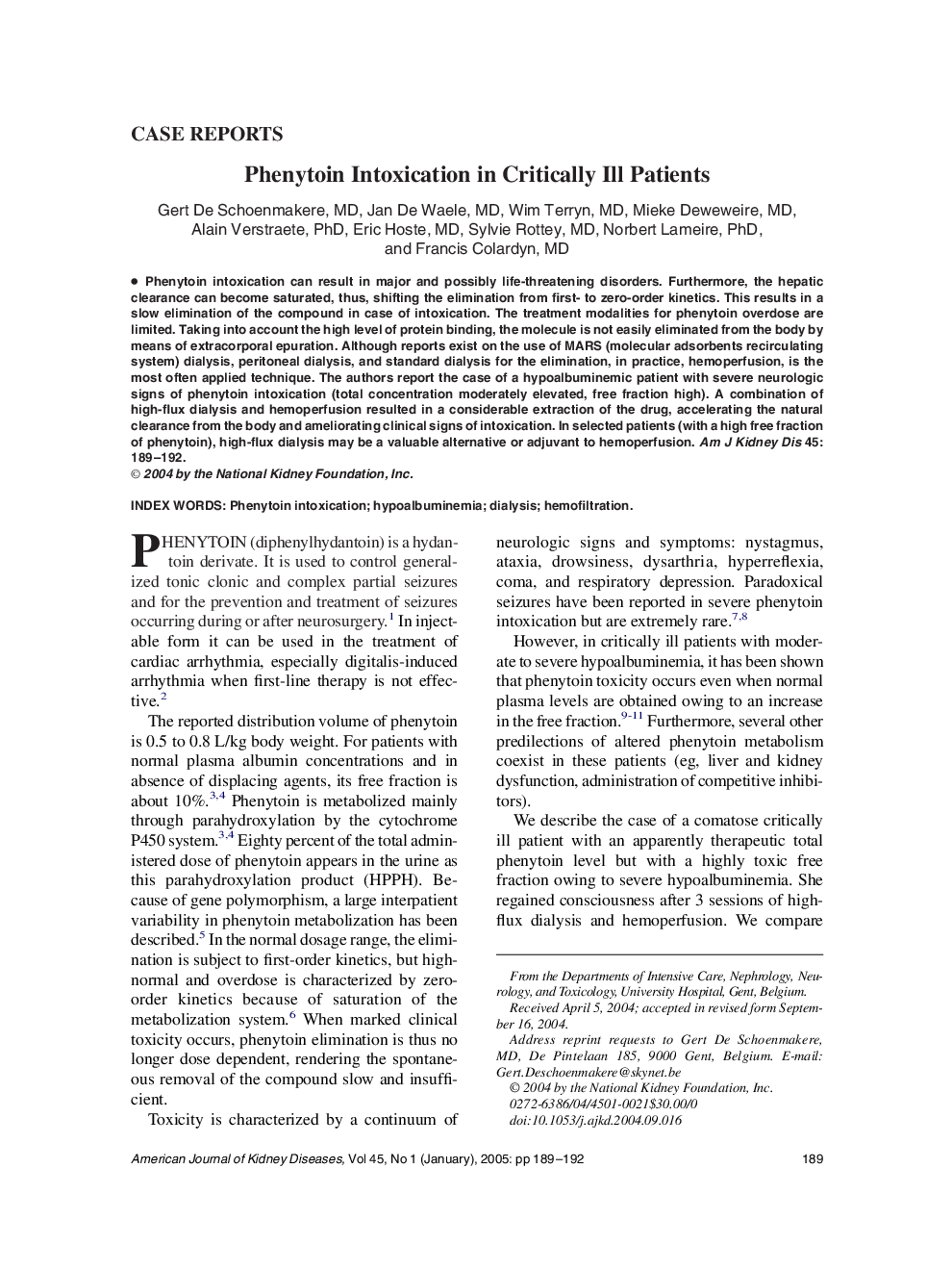| Article ID | Journal | Published Year | Pages | File Type |
|---|---|---|---|---|
| 10047791 | American Journal of Kidney Diseases | 2005 | 4 Pages |
Abstract
Phenytoin intoxication can result in major and possibly life-threatening disorders. Furthermore, the hepatic clearance can become saturated, thus, shifting the elimination from first- to zero-order kinetics. This results in a slow elimination of the compound in case of intoxication. The treatment modalities for phenytoin overdose are limited. Taking into account the high level of protein binding, the molecule is not easily eliminated from the body by means of extracorporal epuration. Although reports exist on the use of MARS (molecular adsorbents recirculating system) dialysis, peritoneal dialysis, and standard dialysis for the elimination, in practice, hemoperfusion, is the most often applied technique. The authors report the case of a hypoalbuminemic patient with severe neurologic signs of phenytoin intoxication (total concentration moderately elevated, free fraction high). A combination of high-flux dialysis and hemoperfusion resulted in a considerable extraction of the drug, accelerating the natural clearance from the body and ameliorating clinical signs of intoxication. In selected patients (with a high free fraction of phenytoin), high-flux dialysis may be a valuable alternative or adjuvant to hemoperfusion.
Related Topics
Health Sciences
Medicine and Dentistry
Nephrology
Authors
Gert MD, Jan MD, Wim MD, Mieke MD, Alain PhD, Eric MD, Sylvie MD, Norbert PhD, Francis MD,
